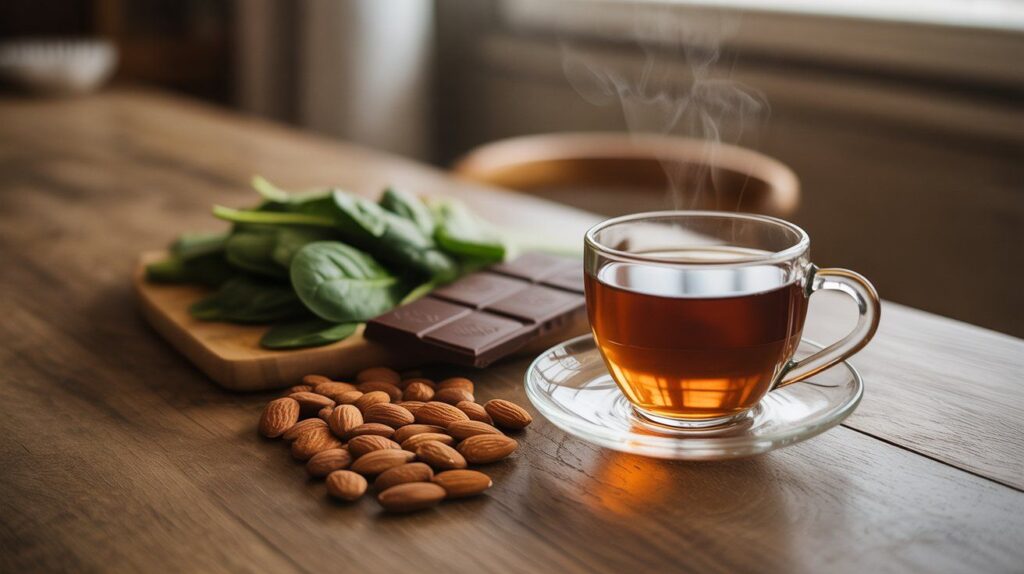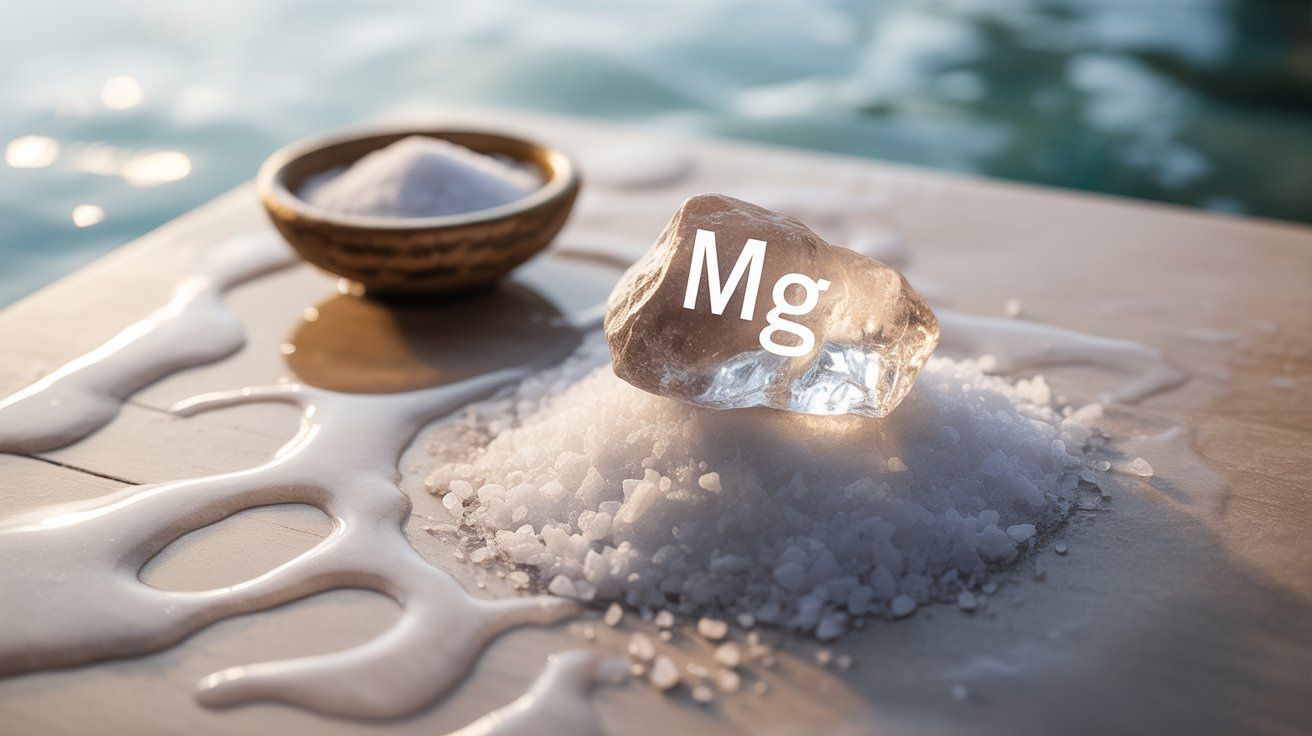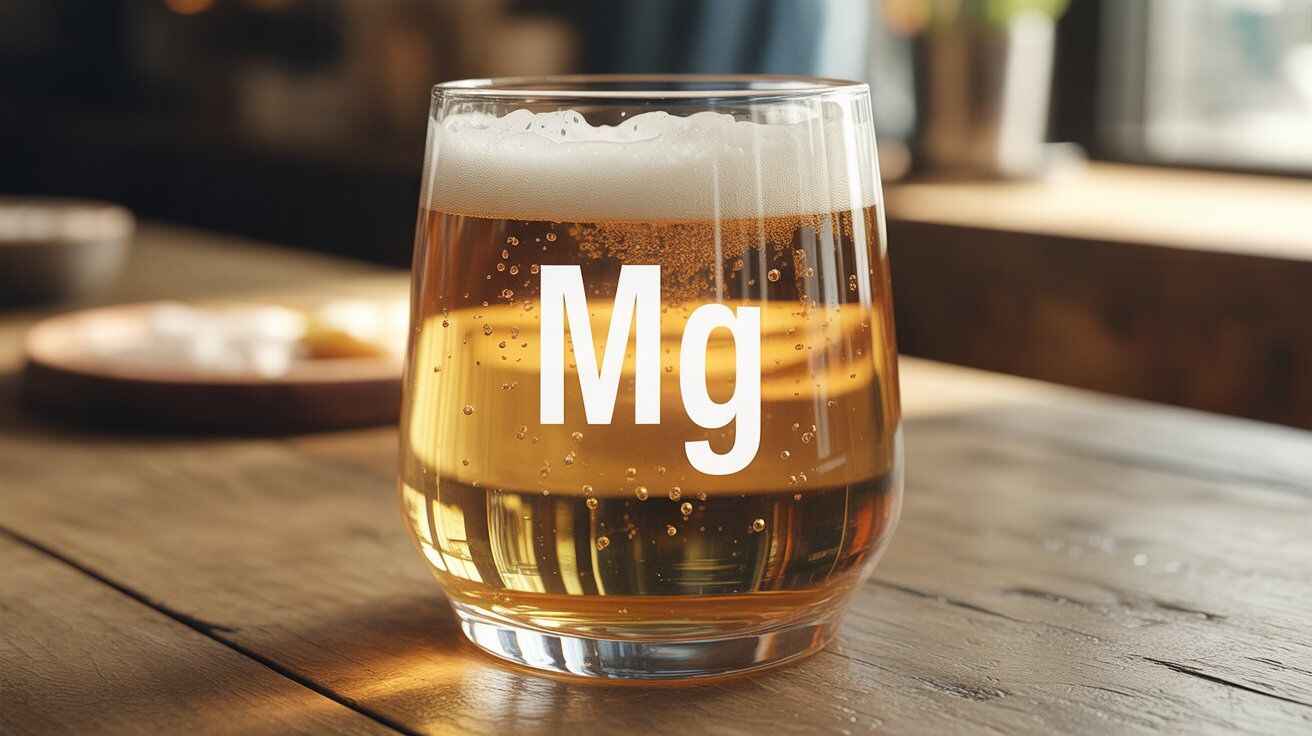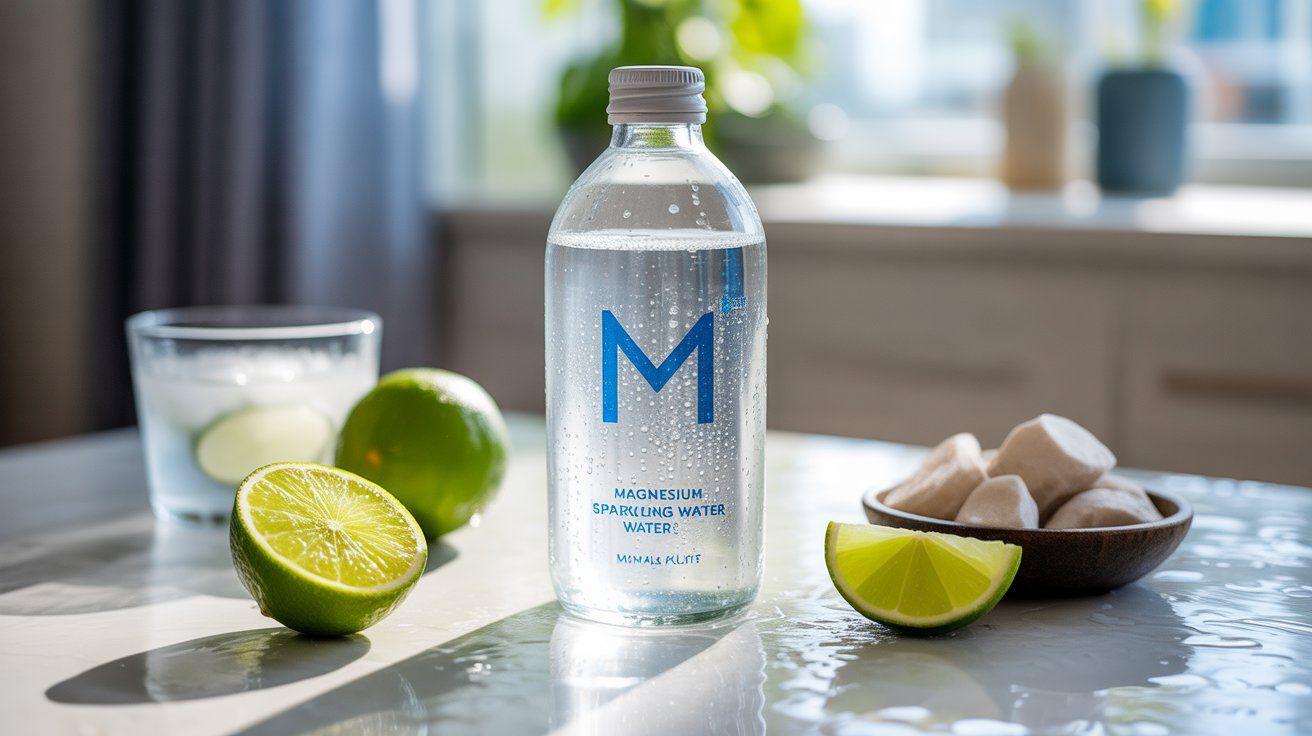Tea and magnesium support wellness. Tea offers 2–7 mg per cup, aiding energy, sleep, and heart health, but should complement richer magnesium foods.
Tea and magnesium
Tea is more than a comforting drink—it also provides trace minerals like magnesium. Magnesium supports energy, muscle, and nerve function, yet many people don’t meet their daily needs.
While tea is not a major source, it contributes modest amounts depending on type and brewing. Understanding tea and magnesium helps optimize nutrition and overall wellness without relying only on supplements.

Why Magnesium Matters for Health
Magnesium is vital for over 300 body functions, including muscle contraction, nerve signaling, energy production, and bone strength.
Low magnesium levels can cause fatigue, stress, and sleep problems. Meeting daily needs through foods, drinks like tea, and supplements supports heart health, relaxation, and electrolyte balance, making magnesium an essential nutrient for long-term wellness.
Does Tea Contain Magnesium? (and How Much?)
Tea contains small but valuable amounts of magnesium, usually 2–7 mg per cup depending on type, soil, and brewing. Green, black, and herbal teas all contribute modestly.
While not a primary source compared to nuts or greens, regular tea drinking adds to daily mineral intake, supporting a balanced approach to dietary magnesium.
Interaction Between Tea and Magnesium — Synergies & Conflicts
| Factor | Effect on Magnesium | Takeaway |
|---|---|---|
| Tannins | May bind minerals and slightly reduce absorption | Effect is minor if diet includes diverse magnesium-rich foods |
| Caffeine | Can increase urinary excretion of magnesium | Moderate tea consumption avoids significant losses |
| Polyphenols/Antioxidants | Enhance magnesium’s benefits for stress and overall health | Synergy between green tea antioxidants and magnesium supports wellness |
| Tea with Food | Drinking tea alongside magnesium-rich meals or supplements | Generally safe and may reduce absorption loss |
| Overall Balance | Tea contributes magnesium but not enough to meet daily needs | Should complement, not replace, dietary sources and supplements |
Magnesium-Infused Teas & Functional Blends
Magnesium-fortified teas are gaining popularity, often using highly absorbable forms like magnesium bisglycinate.
Herbal options such as nettle, dandelion, and peppermint naturally contain more magnesium than traditional teas.
These blends combine calming herbs with mineral support, offering a convenient way to improve daily intake while enjoying tea’s flavor and relaxation benefits.
Health Benefits of Combining Tea and Magnesium
Tea and magnesium together support relaxation, stress relief, and better sleep. Magnesium calms the nervous system, while teas like chamomile or green tea add antioxidants.
This combination also aids heart, bone, and muscle health, and may improve focus and mood. Regular intake creates a gentle synergy for overall wellness and balance.

Safety, Dosage & Potential Risks
Magnesium is safe within recommended limits—310–420 mg daily for adults. Excess intake from supplements may cause diarrhea or kidney strain.
Tea provides only small amounts, but pairing it with magnesium supplements should be done carefully. Those with kidney disease should seek medical advice. Moderation ensures benefits without unwanted side effects.
How to Choose & Brew Tea for Magnesium Support
Selecting magnesium-rich teas like nettle, dandelion, or green tea helps boost intake. Use longer steeping times and mineral-rich water to draw out more minerals.
Pair tea with magnesium-rich foods such as nuts or leafy greens for better balance. Smart brewing and variety ensure tea meaningfully supports daily magnesium needs.

FAQs
Q1. Does tea provide magnesium?
Yes, most teas provide small amounts of magnesium (2–7 mg per cup), contributing modestly to daily intake.
Q2. How much magnesium is in a cup of green tea?
A standard 8-oz cup has about 5 mg magnesium, though this varies with tea type and brewing.
Q3. Can tea help with magnesium deficiency?
Tea alone won’t prevent deficiency. It’s best combined with magnesium-rich foods (nuts, seeds, leafy greens).
Q4. Does tea inhibit magnesium absorption?
Tea tannins and caffeine can slightly reduce absorption, but the effect is small if your diet is balanced.
Q5. Is it safe to drink magnesium-fortified teas daily?
Yes, as long as you don’t exceed the recommended upper limit of magnesium (350 mg supplemental).

Hamid Raza, aged 65, is a seasoned expert in nutrition, health supplements, and wellness, with over four decades of experience researching and educating people about essential minerals like magnesium. His work focuses on helping individuals improve energy, bone health, muscle function, and overall wellness through scientifically-backed magnesium knowledge.
Throughout his career, Hamid has contributed to numerous health articles, research studies, and wellness blogs, making complex nutritional science accessible to everyday readers. Passionate about natural health solutions, he guides readers on choosing the right magnesium supplements for optimal health.





